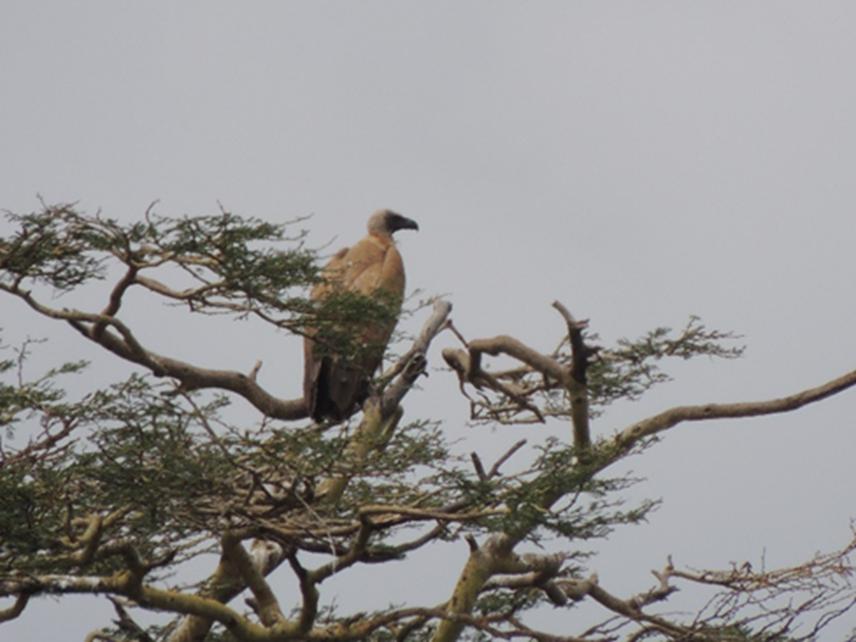Article featuring the project:
Surveying vulture nests in Nairobi National Park (see page 9)
22 Mar 2023 Nairobi National Park, Kenya, Africa Birds | Communities | Biodiversity | Education
Conservation of Vulture Within Athi-Kapiti Ecosystem Through Community Engagement Approach
Vultures, also known as nature’s clean-up crew, provide critically important ecosystem services and socioeconomic benefits. These include cleaning up animal carcasses, helping to keep ecosystems healthy as they act as natural carcass recyclers. However, global vulture species are declining at unprecedented rates both in range and populations due to loss and degradation of their critical habitats. In addition, due to their carcass scavenging nature, vultures are threatened by the negative public image leading to their persecution via direct killing or carcass poisoning since they are perceived as horrid, egotistic, and omens of death.

Gyps africanus roosting on Vachelia xanthophloea at hippo pools in Nairobi National Park. © Brian Ochieng.
Kenya’s Nairobi National Park (NNP) is at the centre of fast-growing human population and high rise of infrastructural developments occurring adjacent to the park. Since it was established at the edges of the city, NNP is under high pressure from rapidly increasing human settlement and land use changes within the city’s metropolitans. Of the most impacted are the migration corridors of Athi Kapiti plains that faces massive anthropogenic activities ranging from settlements, pastoralism, and agriculture. This has led to rise in human–wildlife conflicts that have often contributed to the destruction of property and even loss of life for both humans and wildlife (Kutatoi and Waweru 2018).
As a result, anecdotal reports indicate that vultures are among the affected wildlife populations. The main aims of this study are to investigate vulture abundance, distribution and species richness across different habitats against varying in levels of human disturbance and/or degradation at NNP and its environs. I predict that habitats with critical resources such as high density of widespread trees will harbour higher vulture abundance and species richness. This is because they are key resources for nesting, and roosting sites. Conversely, areas outside the park that are highly disturbed will be poorer in vulture abundance and species richness. Additionally, this project focuses in understanding human perception on vulture conservation and in extension, create public awareness on the need to conserve vultures and their critical habitats. This project’s outcome is to be used by conservation authorities such as the Kenya Wildlife Service and other relevant organisations such as peregrine fund Nature Kenya for the conservation of vultures and their habitats, therefore aiding other wildlife in the study area.
Header: Brian Ochieng' (Project’s principal investigator) in a field survey at hippo pool (Riparian habitat) in Nairobi National Park.
Article featuring the project:
Surveying vulture nests in Nairobi National Park (see page 9)